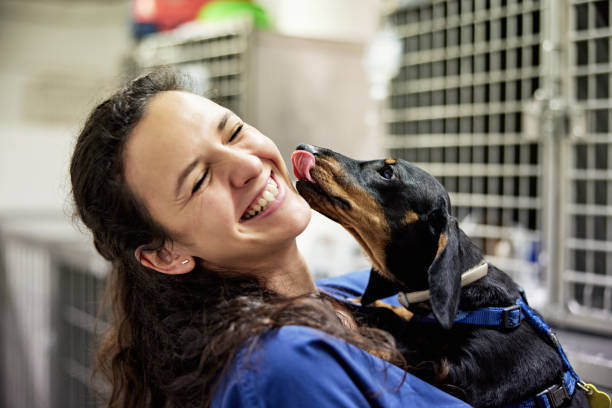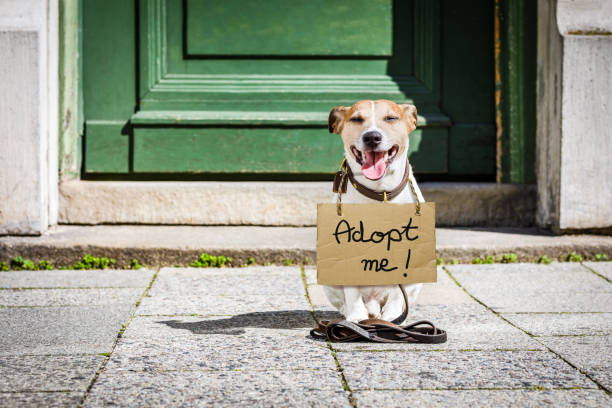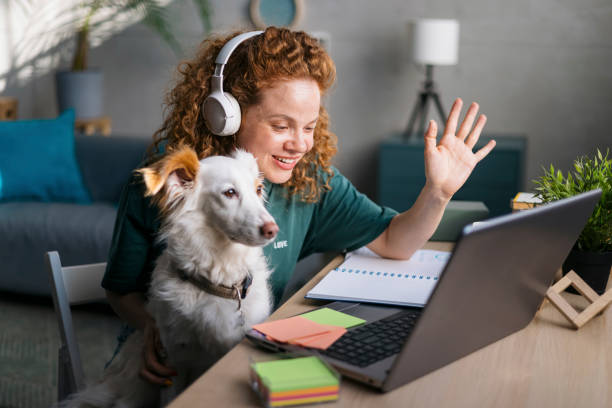Running a successful pet-care business requires a well-structured team with clearly defined roles and responsibilities.
From kennel attendants to grooming specialists, each staff member plays a crucial part in ensuring the safety, happiness, and well-being of the pets in your care. A clear understanding of each role not only helps streamline operations but also fosters a harmonious and productive work environment.
This guide will outline key staff roles in pet-care businesses and their responsibilities to help you build an effective and cohesive team.
Why Clearly Defined Roles Matter
 Ambiguity in job roles can lead to confusion, inefficiency, and gaps in service, which may negatively affect the pets and the overall client experience. Clearly defining staff roles offers several key benefits:
Ambiguity in job roles can lead to confusion, inefficiency, and gaps in service, which may negatively affect the pets and the overall client experience. Clearly defining staff roles offers several key benefits:
- Increased Efficiency: With each staff member knowing exactly what their responsibilities are, tasks are completed more efficiently, leading to smoother daily operations.
- Improved Accountability: When roles are clearly outlined, it’s easier to identify who is responsible for certain tasks or outcomes, improving overall accountability.
- Enhanced Employee Satisfaction: When employees clearly understand what's expected of them, they feel more confident and secure in their roles. This contributes to higher job satisfaction and retention rates.
With these benefits in mind, let's examine the key roles within a typical pet-care business.
Key Roles in a Pet-Care Facility
Pet-Care Manager or Supervisor
The pet-care manager or supervisor is responsible for overseeing day-to-day operations, managing staff, and ensuring that all pets receive proper care. This role is crucial for maintaining the smooth operation of the facility.
Job Responsibilities:
- Supervising staff and ensuring tasks are completed efficiently and to a high standard.
- Managing schedules, payroll, and other administrative tasks.
- Handling customer service inquiries, complaints, and bookings.
- Ensuring compliance with safety and health regulations.
- Addressing any issues that arise with pets, staff, or clients.
This role is critical for ensuring that the facility runs smoothly, staff members are supported, and that pets and pet parents are satisfied with the services provided.
Kennel Attendants
 Kennel attendants are the backbone of any boarding or daycare facility. Their primary responsibility is to care for the pets staying there, ensuring they are safe, clean, and comfortable.
Kennel attendants are the backbone of any boarding or daycare facility. Their primary responsibility is to care for the pets staying there, ensuring they are safe, clean, and comfortable.
Job Responsibilities:
- Feeding and providing fresh water to pets based on their specific dietary needs.
- Cleaning kennels, play areas, and common spaces to maintain a sanitary environment.
- Supervising pets during playtime and exercise, ensuring safe interactions between animals.
- Monitoring pet behavior and reporting any health concerns to management or the pet parent.
- Administering medications as instructed by the pet parent or veterinarian.
Kennel attendants play a vital role in maintaining the health and well-being of the animals and ensuring the facility operates efficiently.
Grooming Specialists
Grooming specialists are responsible for keeping pets clean, healthy, and looking their best. Grooming plays a critical role not only in the pet’s appearance but also in its overall health, as groomers often detect skin conditions, parasites, or other health issues during grooming sessions.
Job Responsibilities:
- Bathing, brushing, and styling pets according to breed standards or pet parent preferences.
- Trimming nails, cleaning ears, and maintaining proper coat hygiene.
- Check for any signs of skin infections, fleas, or other health concerns.
- Communicating grooming needs or findings with pet parents.
- Manage grooming appointments and schedules and ensure timely services.
Grooming specialists ensure pets remain healthy, clean, and comfortable while also enhancing the overall client experience through professional and personalized care.
Pet Trainers
 If your business offers training services, professional pet trainers are essential to the operation. Their role goes beyond teaching basic commands and behavioral techniques—they also help foster better relationships between pets and pet parents.
If your business offers training services, professional pet trainers are essential to the operation. Their role goes beyond teaching basic commands and behavioral techniques—they also help foster better relationships between pets and pet parents.
Job Responsibilities:
- Conducting training sessions for pets, ranging from basic obedience to advanced behavior modification.
- Creating customized training plans based on each pet’s needs, temperament, and the goals of the pet parent.
- Offering guidance and training tips to pet parents for reinforcing training at home.
- Monitoring pets’ progress and adjusting training methods as needed.
- Ensuring training equipment is in good condition and safely used.
Pet trainers enhance the bond between pets and pet parents by instilling positive behaviors and addressing problem areas. They also serve as an important resource for pet parents seeking professional guidance.
Receptionists and Client Care Specialists
Receptionists and client care specialists are pet parents' first point of contact. Their role is to provide excellent customer service, manage bookings, and facilitate communication between the facility and its clients.
Job Responsibilities:
- Greeting pet parents and assisting with check-ins and check-outs.
- Managing appointment bookings, cancellations, and rescheduling.
- Answering phone calls and emails and handling client inquiries.
- Processing payments and updating client accounts.
- Communicating important information about the pets’ stay or services provided.
Receptionists create the first and last impression of your facility. Their professionalism and efficiency are crucial for client satisfaction and retention.
Defining Responsibilities for Cross-Department Collaboration
While individual roles are essential, collaboration between staff members is equally important for seamless service. Clearly defining responsibilities for collaboration ensures that there are no gaps or overlaps in service. Here’s how to encourage effective teamwork:
- Daily Staff Meetings: Regular meetings to discuss the day’s responsibilities, pets' special needs, and upcoming appointments can foster communication and teamwork.
- Staffing Software Systems: Use pet-care management software like Gingr to schedule and track duties for staff members, ensuring that no responsibilities are overlooked.
- Cross-Training: While roles should be well-defined, cross-training staff to handle basic duties in other areas ensures smooth operations during busy periods or staff shortages.
 Clearly defining pet-care staff roles and responsibilities is essential for creating an organized, efficient, and professional business. By ensuring that each team member knows their role and what is expected of them, your pet-care business can thrive, offering exceptional service and creating strong client relationships.
Clearly defining pet-care staff roles and responsibilities is essential for creating an organized, efficient, and professional business. By ensuring that each team member knows their role and what is expected of them, your pet-care business can thrive, offering exceptional service and creating strong client relationships.
From onboarding to scheduling, Gingr makes staffing your pet-care business simple. Get a demo today!
Subscribe to the Gingr Blog






